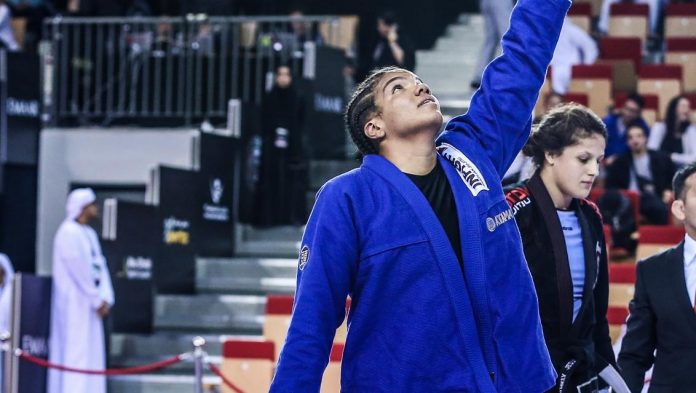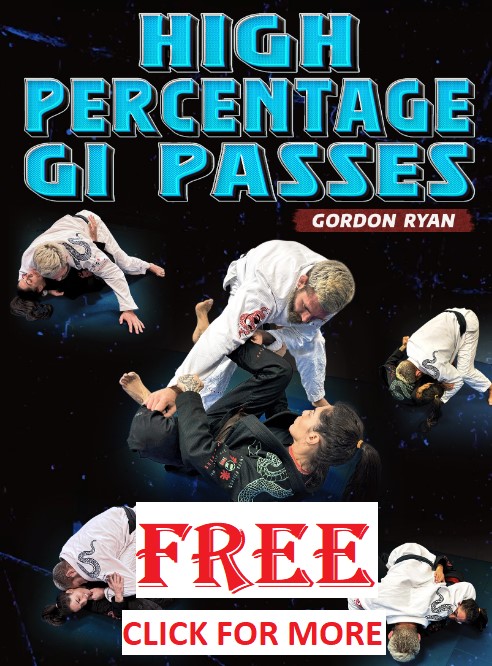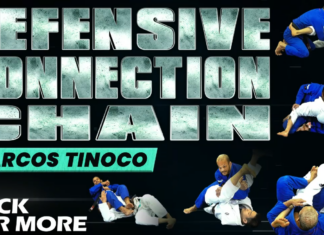
Do you fancy yourself as the next Gordon Ryan? Hold your horses there cowboy. It is easy to dream that you can do what the GOAT of BJJ can but the reality might have a rude awakening laying and waiting for you. Professional BJJ athletes lead a hard and demanding life, and it is not all fun and games as it may seem to be. In fact, you’d be surprised at how few actual professional grapplers there are in the world. Most people usually never move past a recreational involvement in the sport. And, the gap between the two can be huge. However, that doesn’t mean that you can find a balance between both. Because there can only be one King, right?
Training Jiu-Jitsu is fun, rewarding and completely addictive. Just this morning I had a new member of our gym tell me that they can’t stop thinking about BJJ. And I couldn’t relate more. That doesn’t mean, though, that we can all dedicate our lives to becoming professional BJJ athletes and drop everything else. I wish we could. The life and circumstances of professional BJJ athletes, at least those that are at the very top are unimaginable for everyone else involved in grappling. And no, it doesn’t matter how many podcasts you watch with the top 0.1% of grapplers talking about their “usual day”. It goes much deeper than that if you want to make the jump from recreational to professional.
The Professional BJJ Scene
The professional JIu-Jitsu scene is booming at the moment. People are finally getting to enjoy the benefits of getting paid for being full-time Jiu-Jitsu athletes. However, just like wit every other professional sport out there, this is something reserved for only a select few. Yes, you might end up getting invitations to certain tournaments, but getting to the stage of Polaris, EBI, Third Coast grappling, etc, is beyond most people’s scope.

Professional BJJ is at a rise at the moment. This draws many people towards it, but that road can be full of traps. You need to completely change your life and sacrifice a lot if you want to be a professional athlete. Even more so if your sport of choice is MMA or BJJ. Everything from nutrition to training, sleep time, training partners, the class schedule has to work like clockwork. Plus there are all the social and family sacrifices you’ll need to do, and that’s before I even start to mention the issues of getting and retaining sponsorships and actually getting invited to professional BJJ events.
Everyone Else
BY everyone else, as you’ll see, I’ll group several different categories of grapplers that are not quite professional BJJ athletes. At least not yet. I recently had the pleasure of learning, form a very distinct BJJ black belt nonetheless, the theory of what experts are. If you want to be an expert in JIu-Jitsu, all ti takes is getting a black belt. That way, you’ll get in the top 5 % of the people in the sport for sure (do not quote me on the numbers). To achieve this, you might not ever compete, not a day in your life, ever. You’ll still be a JIu-Jitsu expert compared to the rest of the world. Then, there’s the top 1 %, the black belts we know of, whose instructional we watch and we admire. In essence, it would be unimaginably hard getting there yourself. Without competition, it is literally impossible.
Finally, there’s a category that goes above exerts. There are the absolute savants of BJJ, those who perceive that at a completely different level. This is the top 0,1 %, where people like Gordon Ryan, Gary Tonon, Bea Mesquite, BUchecha and other household names go.
Let’s put things like this, Everyone that’s not in those top 5% of their belt level, speaking from purple and above, is purely training in a recreational manner. And that’s perfectly alright. Most of us are. If you’re in that 5 % and doing your best to emulate the lifestyle of the top professional BJJ athletes, but still have a life outside the gym, you’re by all means a competitor, and undoubtedly ultra-strong and prepared. However, you’re only at an amateur level, at least for the time being. Even if you get to the 1 % of black belt competitors, you’ll find it hard to br3eak through into the ranks of the professionals.
Can You Be Both?

That said, you can also blend things. It is what most people do. The line between a top amateur competitor and a professional BJJ athletes might be a big one, but that doesn’t mean you can’t toe it on both sides form time to time. You’ll never be Gordon Ryan or Nicky Ryan for that matter unless you go all-in. But you can enjoy your time grappling and even eventually get paid for doing it. For most people, this is the harsh reality, and no amount of John Danaher DVDs is going to change your life in a few weeks or months.
Final thoughts
Just train Jiu-Jitsu. Enjoy Jiu-Jitsu. Live Jiu-Jitsu, and be a part of the amazing community worldwide. With that, you won’t’ miss out on anything. If you want to really make it your calling though, you’ll have to go through the same steps as everyone. Just like going through the belts, you’ll need to go through the ranks of a competitor to reach the level of a professional BJJ athlete. That said, remember that the gap between being a high-level pro and everything else is a large one. So, if you’re going to do the jump, make sure you get enough momentum!


![Darce Choke Encyclopedia – Origins, Mechanics and Variations [2024] BJJ, choke, Brabo, BJJ Darce Choke, D'arce Choke, Darce BJJ Choke](https://bjj-world.com/wp-content/uploads/2017/11/JungPoirierLeeYahoo-218x150.jpg)









![Shotgun Aoki Locks Mateusz Szczecinski DVD Review [2025] Shotgun Aoki Locks Mateusz Szczecinski DVD Review](https://bjj-world.com/wp-content/uploads/2025/03/shotgun-aoki-locks-mateusz-szczecinski-dvd-review-218x150.png)


![Upper Body Chain Attacks Janine Mocaiber DVD Review [2025] Upper Body Chain Attacks Janine Mocaiber DVD Review](https://bjj-world.com/wp-content/uploads/2025/03/upper-body-chain-attacks-janine-mocaiber-dvd-review-218x150.png)
![The Empty Half Guard Michael Currier DVD Review [2025] The Empty Half Guard Michael Currier DVD Review](https://bjj-world.com/wp-content/uploads/2025/03/empty-half-guard-michael-currier-dvd-review-218x150.png)


![Jett Thompson Master Ankle and Aoki Lock DVD Review [2024] Jett Thompson Master Ankle and Aoki Lock DVD Review](https://bjj-world.com/wp-content/uploads/2024/09/jett-thompson-master-ankle-and-aoki-lock-dvd-review-100x70.png)
![Finish on the Back Ethan Crelinsten DVD Review [2024] Finish on the Back Ethan Crelinsten DVD Review](https://bjj-world.com/wp-content/uploads/2024/10/finish-on-the-back-ethan-crelinsten-dvd-review-100x70.png)

![Leg Locks From Beginner To Advanced Dan Manasoiu DVD Review [2024] Leg Locks From Beginner To Advanced Dan Manasoiu DVD Review](https://bjj-world.com/wp-content/uploads/2024/12/leg-locks-from-beginner-to-advanced-dan-manasoiu-dvd-review-100x70.png)
![Bricks Kesa Gatame System Jeremy Brick DVD Review [2025] Bricks Kesa Gatame System Jeremy Brick DVD Review](https://bjj-world.com/wp-content/uploads/2025/02/bricks-kesa-gatame-system-jeremy-brick-dvd-review-100x70.png)

![Edging Yourself Out Of Danger Craig Jones DVD Review [2024] Edging Yourself Out Of Danger Craig Jones DVD Review](https://bjj-world.com/wp-content/uploads/2024/12/edging-yourself-out-of-danger-craig-jones-dvd-review-100x70.png)
![BJJ Foundations Mikey Musumeci DVD Bundle Review [2024] BJJ Foundations Mikey Musumeci DVD Bundle Review](https://bjj-world.com/wp-content/uploads/2024/09/bjj-foundations-mikey-musumeci-dvd-bundle-review-100x70.png)




![Reverse Armlock Magid Hage DVD Review [2024] Reverse Armlock Magid Hage DVD Review](https://bjj-world.com/wp-content/uploads/2024/12/reverse-armlock-magid-hage-dvd-review-100x70.png)



![Feet Finder Foot Sweeps Christian Ozbek DVD Review [2024] Feet Finder Foot Sweeps Christian Ozbek DVD Review](https://bjj-world.com/wp-content/uploads/2024/09/feet-finder-foot-sweeps-christian-ozbek-dvd-review-100x70.png)






![Wristlocks From The Top Pete Letsos DVD Review [2025] Wristlocks From The Top Pete Letsos DVD Review](https://bjj-world.com/wp-content/uploads/2025/01/wristlocks-from-the-top-pete-letsos-dvd-review-100x70.png)
![No-Gi Defense Xande Ribeiro DVD Review [2024] No-Gi Defense Xande Ribeiro DVD Review](https://bjj-world.com/wp-content/uploads/2024/11/no-gi-defense-xande-ribeiro-dvd-review-100x70.png)

![Effectively Passing The Guard Luke Griffith DVD Review [2025] Effectively Passing The Guard Luke Griffith DVD Review](https://bjj-world.com/wp-content/uploads/2025/01/passing-the-guard-luke-griffith-dvd-review-100x70.png)